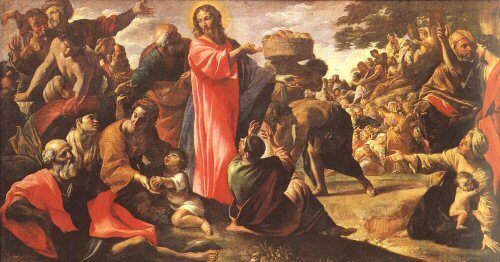In the Bible, Jesus performed a lot of miracles. He healed people. He had power over nature. He even overcame death. But what about the miracles he didn’t do? Here are three instances in the Bible where Jesus chose not to do the miraculous wonders he was known for:
1. A miracle without faith
In Mark 6 (and Matthew 13), Jesus returns to Nazareth, his hometown. These people knew Jesus before he started his ministry.
And on the Sabbath he began to teach in the synagogue, and many who heard him were astonished, saying, “Where did this man get these things? What is the wisdom given to him? How are such mighty works done by his hands? Is not this the carpenter, the son of Mary and brother of James and Joses and Judas and Simon? And are not his sisters here with us?” And they took offense at him (Mark 6:2–3).
Two verses later: “And he could do no mighty work there, except that he laid his hands on a few sick people and healed them” (Mark 6:5). The NLT says, “And because of their unbelief, he couldn’t do any miracles among them except to place his hands on a few sick people and heal them.”
While the NIV says Jesus couldn’t do miracles in Nazareth, this isn’t suggesting that faith is some sort of fuel for miracles, and Jesus was running on empty. Most likely, the lack of faith meant that people didn’t ask Jesus to help them—or else, because of their lack of faith, Jesus chose not to. The bottom line is, there was no faith, so in this instance, he didn’t.
2. A “sign from heaven”
After Jesus feeds the 4,000 in Decapolis, he and his disciples get into a boat and head to Dalmanutha.
The Pharisees came and began to argue with him, seeking from him a sign from heaven to test him. And he sighed deeply in his spirit and said, “Why does this generation seek a sign? Truly, I say to you, no sign will be given to this generation.” And he left them, got into the boat again, and went to the other side (Mark 8:11–13).
Miracles are not for our entertainment. They are not a prerequisite for faith. If all of creation testifies about its creator (Romans 1:20, Psalm 19:1), why should he have to give us a personal sign from heaven on top of that? If you ask God for a sign from heaven like the Pharisees, chances are you’ll be disappointed like the Pharisees.
3. A miracle that contradicted God’s plan
As Jesus hung on the Cross, his divinity was mocked. Again, people wanted to see a sign from heaven, and their requests for a miracle emerged from a severe lack of faith—they did not believe Jesus was who he said he was, and they would not believe him unless the God of the universe did what they asked, right then and there. As he hung there dying, Jesus, who was fully God, could have come down from that cross. Fully man, Jesus may have even been tempted by the prospect (Hebrews 2:18). But he didn’t come down.
And those who passed by derided him, wagging their heads and saying, “Aha! You who would destroy the temple and rebuild it in three days, save yourself, and come down from the cross!” So also the chief priests with the scribes mocked him to one another, saying, “He saved others; he cannot save himself. Let the Christ, the King of Israel, come down now from the cross that we may see and believe” (Mark 15:29–32).
Jesus didn’t come down because the Cross had a purpose. The miracle of his survival would have undermined the greater miracle of his resurrection.
It’s easy to think about the miracles that Jesus did do. In brief interactions, he radically altered people’s lives. But his ways are higher (Isaiah 55:8–9), and because of that, the miracles Jesus didn’t do are equally important in helping us understand the inexplicable.
***
Continue learning about Jesus’ miracles with Miracles: The Credibility of the New Testament Accounts by Craig S. Keener.
This wide-ranging and meticulously researched study presents the most thorough current defense of the credibility of the miracle reports in the Gospels and Acts. Keener draws on claims from a range of global cultures and takes a multidisciplinary approach to the topic. He suggests that many historical and modern miracle accounts are best explained as genuine divine acts, lending credence to the biblical miracle reports.
Read Miracles: The Credibility of the New Testament Accounts.






